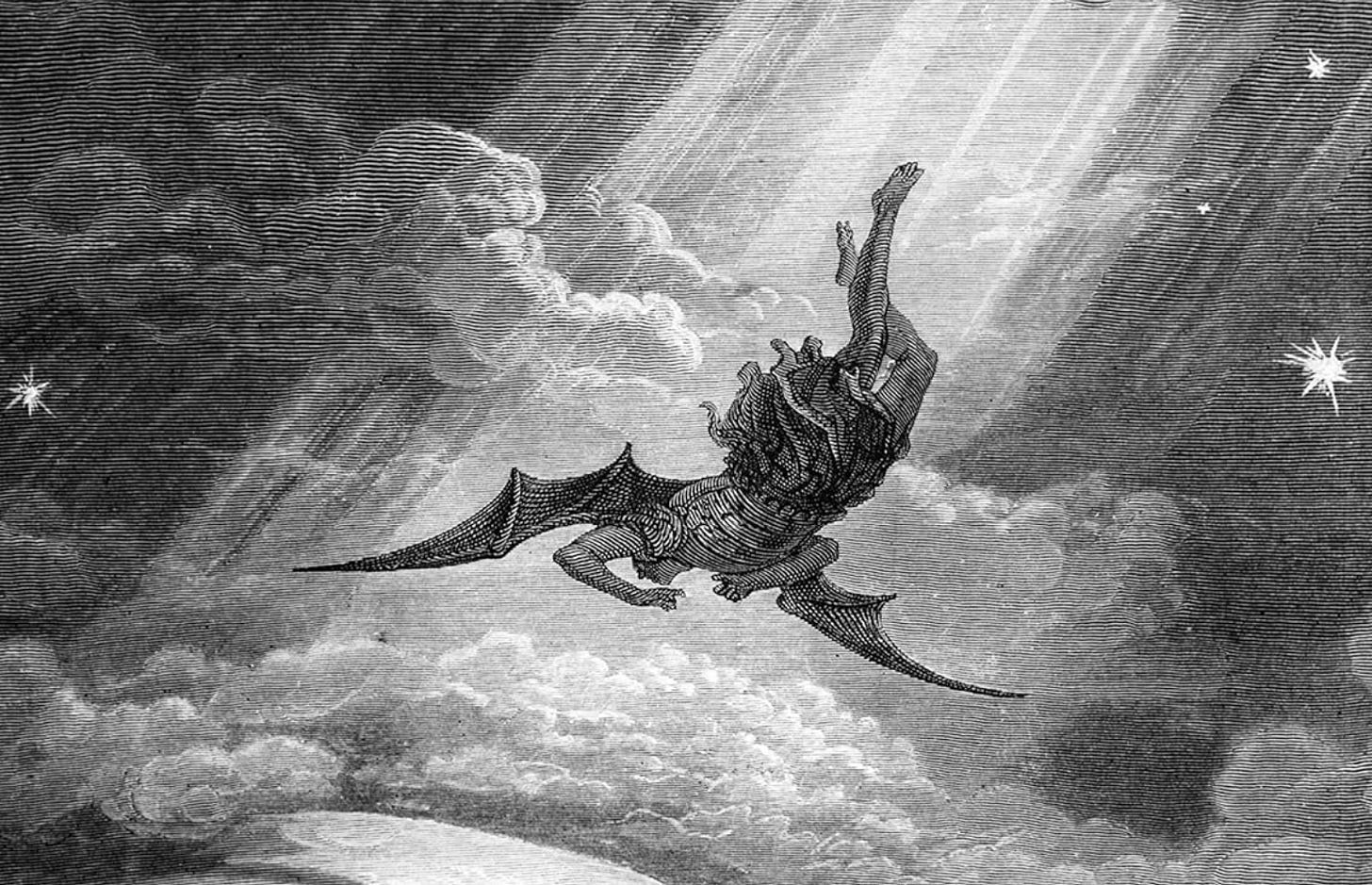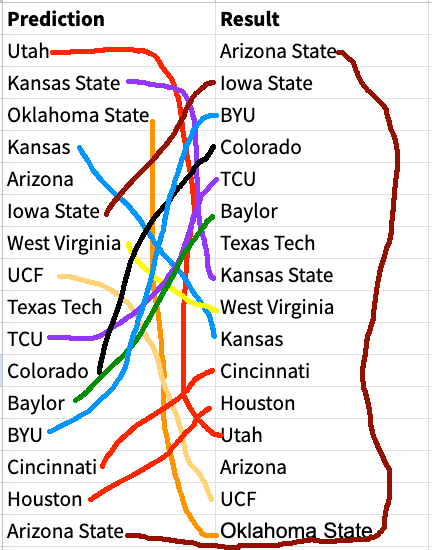WATCH GRID: The last shall be first
Everything has happened before. What will happen next?
1. For the first 510-ish years of Christianity, it was common (and maybe even typical) to encounter Christians who denied belief in an eternal Hell.
Despite the pop-cultural/conservative-theological assumption that all Christians have always believed the same “everyone either goes to Satan World forever or goes to pearly gates forever” thing, there are centuries’ worth of records of early (and Medieval and modern and …) Christian theologians professing all sorts of beliefs about the world to come, the fates of souls, and even the ultimate restoration of all things.
One of the most influential universalist theologians1, the third-century Saint Origen of Alexandria2, taught that creation was originally a harmony between all conscious beings — and that “the end is always like the beginning,” meaning we are on a long path back toward universal harmony.
How naive, right? How could we ever reach such an end, considering how bad things have gotten since then? Some guy from long ago couldn’t know anything about our current predicament. Modernity would’ve broken the desert weirdo’s sense of bleeding-hearted mercy.
Oh wait, he spent two of his final years being tortured by the Roman Empire, refusing to recant the claim that there is a power greater than Caesar? Hmm. Nevermind that part.
Origen saw conscious beings as defining themselves by their choices, indicating a fluidity in status, a tomorrow different from today, a hopeful imagination.
"Since all are possessed of free will, and may of their own accord admit either of good or evil, … angels may become men or demons, and again from the latter they may rise to be men or angels."3
To be clear, this isn’t as blithely La Dee Da as it might sound. This is still grounded in an ancient tradition of social justice, a tradition that would inspire one of Origen’s readers to write the world’s oldest recorded argument for the total abolition of slavery.
If somebody is treating others the same way a demon would, then this figurative or literal demon is not ready to rejoin harmony with the Creator. But in place of an eternally punitive Hell functioning as a pointless wrath dump, Origen taught a retroactively radical version of a long-widespread Christian belief: that the cleansing fire of divinity will “remove the defects of our souls” until everyone — as in, e v e r y o n e — is restored.4 For some of us, that cleansing will take a while. But:
“Through the numerous and uncounted orders of progressive beings who are being reconciled to God from a state of enmity, the last enemy is finally reached, who is called death, so that he also may be destroyed.”
Thus, in Origen’s vision of the end, after all has been fairly purged, the only thing that has been damned is death itself.
How nice! Who could be mad at that? Well, lots of people, though not for a while. You know how “woke” has gone from being an AAVE term for awareness of bigotry to being a conservative term for Cracker Barrel’s logo causing emotional distress? A similar kind of thing happened to Origen’s legacy. In the 400s and 500s, “Origenism” had become a scrambled grab bag of so-called heresies, according to some of the guys who were wearing the biggest hats at the time, whether the long-dead Origen would’ve affirmed any of it or not.
In 553 at the Second Council of Constantinople, big-hatted Byzantine emperor Justinian I pretty much just … up and decided “Origenism” had been wrong about everything, using a straw man called “Origen” to denounce this and that, despite no record of Jesus having ever empowered any big-hat guys, and especially not a literal emperor. Lumped in among the grab bag of Stuff Some Politician Doesn’t Like was this condemnation of one version of universalism:
“If anyone says that the heavenly powers, all human beings, the devil, and the spirits of wickedness will be united to God, … let him be anathema.”
Despite that caricature, Origen hadn’t taught 300 years prior that snarling gangs of stinky demons will strut into Heaven, sneering slurs and leaving muddy shoeprints everywhere. He’d instead described demons one day deciding to quit the demon business, become non-demons, become things better than demons, and be further rehabbed by divinity as necessary:
"The destruction of the last enemy must be understood in this way, not that its substance which was made by God shall perish, but that the hostile purpose ... will come to an end."
Our good and bad choices define who we have been until right now, but in each new moment, our divine essence is capable of good. One play at a time.
2. The Big 12 Conference no longer publishes an official preseason poll on how its football teams will perform in the upcoming season.
That’s probably because last year’s edition ended up being one of the most last-shall-be-first things I’ve ever seen in sports:
“They continue to keep saying that people are going to try to stop me,” said long-overlooked ASU running back Cam Skattebo before the surprise Big 12 champions’ playoff matchup against the ever-imperial Texas Longhorns. “There's nobody out there that can stop me.”
"What he's trying to say is, 'My entire life I was the only one who believed in me,’” explained head coach Kenny Dillingham, defending his player.
Skattebo’s Sun Devils then backed it up, forcing the two-touchdown favorites all the way into double overtime before going down as the country’s most beloved team of the season. All that after they’d been picked to finish dead last in a second-tier conference. Nobody ever knows what will happen next.
Then again, maybe that upheaval shouldn’t have been a big surprise. After all, as Origen wrote 1,800 years prior about the creature who is currently dead last in a different ranking:
“Every rational being is capable of praise … if … he advance to better things. … This is also thought to apply to the Devil.”
3. Of course, not all devils will advance to better things any time soon.
Speaking of our modern predicament.
Just as in ancient Rome, empire has always wanted its own entrenchment to be permanent. But it can’t be, because nothing ever has been. The desperate attempts by caesars and other self-declared angels, those who’ve ranked themselves on the top of society, to avoid ever trading places with those they perceive as demons? Nothing new.
Nothing else is new, either. Not oppression, hoarding, or lying. Most of history, art, religion, and everything else has always been a story about creation vs. empire, love vs. empire, and the future vs. empire.
A few months ago on the Vacation Bible School Podcast, I asked Trey Ferguson, a pastor and author from Florida, “How do you find hope when the world feels extra hopeless?” Part of what he said:
“I’m not hopeful about the prospects of America as an entity. It will fall eventually. But what I look forward to is: What might we be able to rebuild with the revived imaginations that we will have if we do not let our hope whither on the vine? My hope is always in tomorrow. That’s the one part of the story that’s not written yet.”
Collectively, we’ve always outlasted empire, over and over and over, though it sucks along the way. Whatever your name for the power that is greater than Caesar, whether it’s personified or not, it will outlast him every time.
The first will always become the last, and then maybe the first will huff and puff and finally give up on its demon business after a few million years or so, once the first accepts it will never have the permanence it craves without earning harmony among the last.5
4. Nine college football seasons ago, I began posting a weekly schedule guide called the Watch Grid. It’s an ugly spreadsheet, sometimes modified with even uglier Paintbrush scrawling, and during this decade, it’s barely ever changed.
I posted it for four years at SB Nation, one year on a defunct subreddit, one year at USA Today, one year on my Instagram, and two years via this newsletter.
I have no idea why people like it. This hideous spreadsheet, which long ago took me probably six minutes to set up while probably in the middle of editing seven other posts, is one of the four or five things I’m most known for. Seeing it on socials or in email is some sort of a tradition for the weirdo corner of college football internet, and I’m grateful for that. I do understand the hideousness is somehow part of the appeal.
People like it so much (despite me not knowing why) that they let me evolve it into a space to yap about things that allegedly have nothing to do with football. Last year at this time, I wrote about Week 1 by writing about process theology. The year before that, the end of the world. It was kind of people to let me do this.
Going forward, a new version of the Watch Grid will arrive via the Until Saturday newsletter, the free CFB newsletter I write for The Athletic. (I hope you’ll also stay subscribed here, since it’s not like I gratuitously bombard your inbox haha.)
Still, I wanted to send us out with more huge version, with its younger sibling to follow tomorrow in Until Saturday. Here is the last edition of the OG 2016-2024 Watch Grid, though it’s also the first of the 2025 season. The last, the first. It looks the same as it ever did, because the end is always like the beginning.
Some other stuff:
Spencer Hall joined us on VBS to discuss the Bible story about two bears eating 42 youths, and we had a good chat about having both been incompatible for two very different (but not very different, if we’re keeping it real) varieties of Christianity. Emily and I are now working on our episode about Jonah.
The Shutdown Fullcast has a Patreon now. It has four hours’ worth of garbage so far.
Speaking of afterlife cleansing that might take a while: Sojourners had me write about the death of James Dobson, the Wormtongue who tried to break tens of millions of us.
Thank you for this: Hell Is A World Without You has been available for almost two years now, and it’s yet to have a day without sales. (Try the audiobook, available at your library if you ask nicely!)
Expedition 33 is one of my seven or so favorite video games ever.
Behind only Jesus, Paul, and the author of Genesis 1.
Origen is not considered a saint by any large denominations. Not my problem.
Quotes from Origen’s “On the First Principles.”
Sort of like the purgatory idea usually most associated these days with Roman Catholics, not that they or any early other churches came up with it.
It still feels funny to use the word “empire” in this liberation-theology way after hearing it used the same way in Andor.






"The last, the first. It looks the same as it ever did, because the end is always like the beginning." Why, oh why did this actually make me teary-eyed? It's just college football for goodness' sake, but somehow, you have made it so much more. Thanks Jason.
Thanks for dropping the name of the game. I missed the name in the Patreon episode.